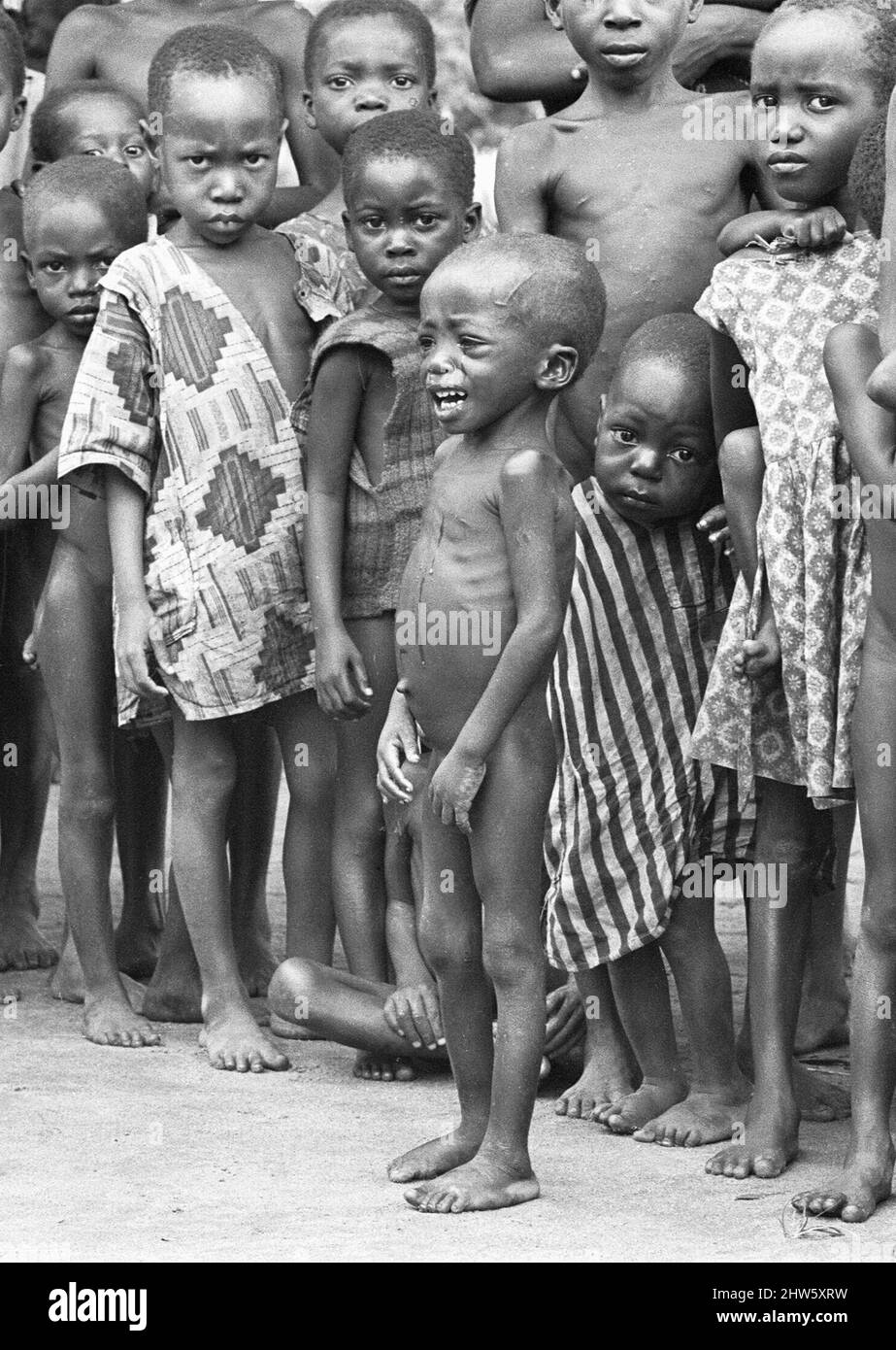Starving children at the Queen Elizabeth Hospital, Umuahia just a few of the estimated one to two million victims of the Biafran War. 23rd June 1968The Nigerian Civil War, also known as the Biafran War endured for two and a half years, from 6 July 1967 to 15 January 1970, and was fought to counter the secession of Biafra from Nigeria. The indigenous Igbo people of Biafra felt they could no longer co-exist with the Northern-dominated federal government following independence from Great Britain. Political, economic, ethnic, cultural and religious tensions finally boiled over into civil war foll

Image details
Contributor:
Trinity Mirror / Mirrorpix / Alamy Stock PhotoImage ID:
2HW5XRWFile size:
68.1 MB (3 MB Compressed download)Releases:
Model - no | Property - noDo I need a release?Dimensions:
4111 x 5787 px | 34.8 x 49 cm | 13.7 x 19.3 inches | 300dpiDate taken:
23 June 1968Photographer:
MirrorpixMore information:
This image could have imperfections as it’s either historical or reportage.
Starving children at the Queen Elizabeth Hospital, Umuahia just a few of the estimated one to two million victims of the Biafran War. 23rd June 1968The Nigerian Civil War, also known as the Biafran War endured for two and a half years, from 6 July 1967 to 15 January 1970, and was fought to counter the secession of Biafra from Nigeria. The indigenous Igbo people of Biafra felt they could no longer co-exist with the Northern-dominated federal government following independence from Great Britain. Political, economic, ethnic, cultural and religious tensions finally boiled over into civil war following the 1966 military coup, then counter-coup, which led to the persecution of Igbo living in Northern Nigeria. Control over oil production in the Niger Delta played a vital strategic role in the causes of the war. Within a year, the Nigerian Military Government had surrounded Biafra and imposed a blockade. The ensuing stalemate led to a severe famine in the region Over the two and half years of the conflict varying estimates of one to two million people died from starvation, diseases or fighting.